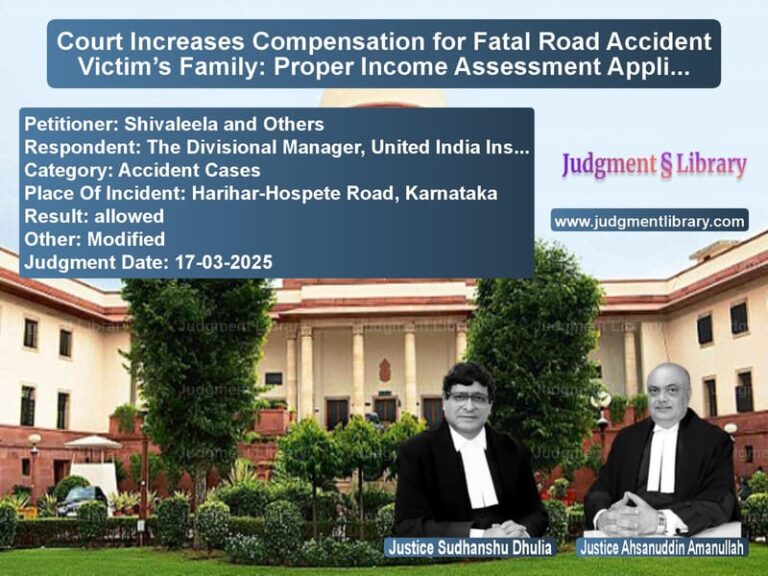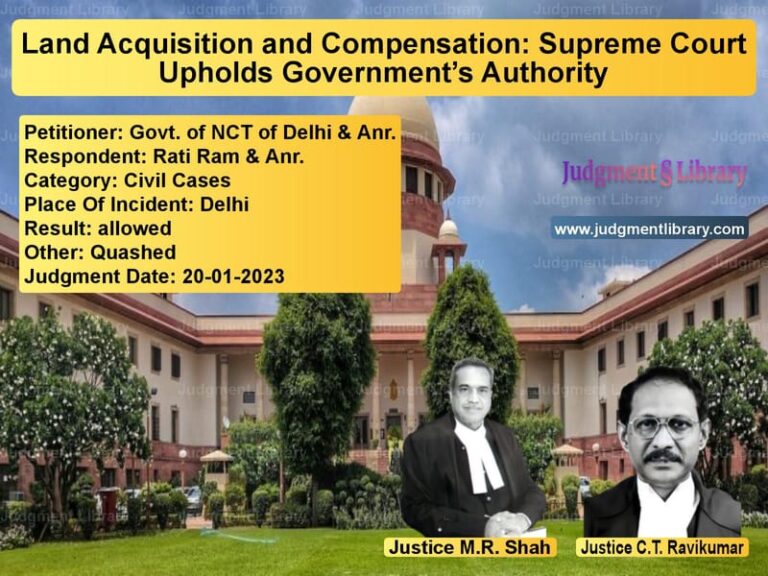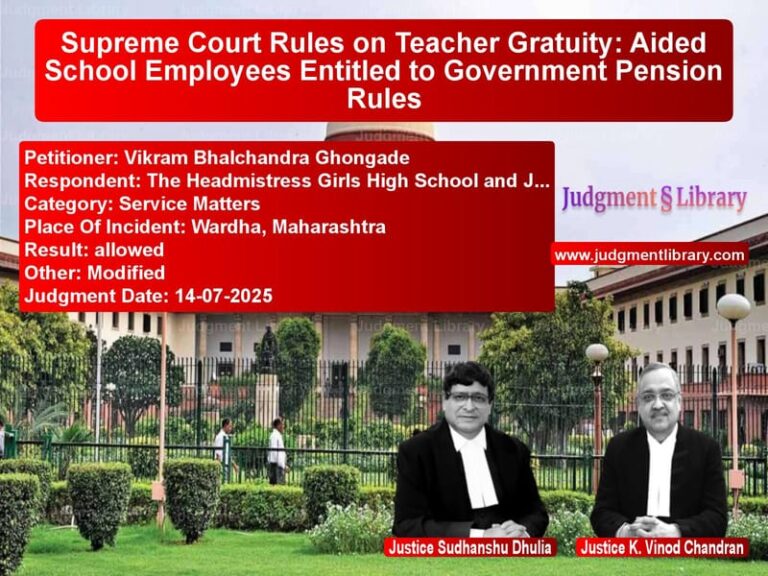Tax Liability on High Seas Sales: Analyzing Import Transactions and Inter-State Sales
The case of M/S Vellanki Frame Works vs. The Commercial Tax Officer, Visakhapatnam revolves around the interpretation of high seas sales and their tax implications under the Central Sales Tax Act, 1956. The primary issue addressed was whether the sales transactions in question qualified for exemption under Section 5(2) of the CST Act as sales in the course of import, or whether they were inter-state sales subject to tax.
The dispute arose when the Commercial Tax Officer (CTO) denied exemption to the appellant, Vellanki Frame Works, on the grounds that the goods had crossed the customs frontiers of India, making the subsequent sales inter-state transactions liable to tax. The High Court upheld the assessment orders, leading to the present appeal before the Supreme Court.
Background of the Case
The appellant, a proprietary concern dealing in timber and wooden products, engaged in transactions where goods were imported from a foreign supplier and transferred to end-buyers in India. The transactions involved multiple parties, including:
Read also: https://judgmentlibrary.com/gst-levy-on-lottery-and-taxable-goods-constitutional-validity-upheld/
- The foreign supplier (seller)
- The first buyer in India
- The appellant (intermediary)
- The end-buyer in another Indian state
While the goods were in transit on high seas, the bill of lading was endorsed in favor of the appellant and subsequently transferred to the end-buyer. However, at the port of arrival in Visakhapatnam, the appellant filed bills of entry for warehousing and later for home consumption. The appellant was assessed to customs duty, and later issued debit notes to the end-buyers.
Petitioner’s Arguments
The appellant argued that:
- The sales in question were high seas sales, as they were effected by transfer of documents of title while the goods were still on the high seas.
- The transactions fell within the exemption under Section 5(2) of the CST Act, as they were sales in the course of import.
- The appellant merely acted as an agent of the end-buyers and was not the owner of the goods.
- The filing of bills of entry and payment of customs duty were procedural requirements and did not alter the nature of the transaction.
Respondent’s Arguments
The Commercial Tax Officer contended that:
- The appellant was the actual importer since it filed the bills of entry and paid customs duty.
- The sale of goods by the appellant to the end-buyers could only have taken place after customs clearance, making it an inter-state sale under Section 3(a) of the CST Act.
- The Import General Manifest (IGM) did not reflect the names of the end-buyers, indicating that the appellant was the true importer.
- The subsequent movement of goods from Visakhapatnam to other states was an inter-state sale and was therefore liable to tax.
Key Observations by the Court
The Supreme Court analyzed various aspects of the case and made the following key observations:
- Filing of bills of entry and payment of customs duty are significant indicators of importation. The appellant, having completed these steps, was deemed to be the importer.
- The appellant’s claim that it acted as an agent was not supported by official records, as the IGM and bills of entry named the appellant as the importer.
- For a sale to qualify under Section 5(2), the transfer of documents must be reflected in customs records, which was not the case here.
- The goods, after customs clearance, moved from Andhra Pradesh to other states, constituting an inter-state sale taxable under Section 3(a) of the CST Act.
Final Judgment
The Supreme Court dismissed the appeal, holding that:
- The transactions were not high seas sales and did not qualify for exemption under Section 5(2) of the CST Act.
- The appellant had cleared the goods for home consumption, thereby completing the import process.
- The movement of goods to different states post-import was an inter-state sale liable to tax.
- The appellant was granted three months to submit C-Forms for availing concessional tax rates.
This judgment reinforces the principle that mere endorsement of bills of lading is insufficient to claim high seas sale exemption unless corroborated by official records. Importers must ensure compliance with customs documentation and taxation laws to avoid disputes.
Petitioner Name: M/S Vellanki Frame Works.Respondent Name: The Commercial Tax Officer, Visakhapatnam.Judgment By: Justice Dinesh Maheshwari, Justice A.M. Khanwilkar.Place Of Incident: Visakhapatnam.Judgment Date: 13-01-2021.
Don’t miss out on the full details! Download the complete judgment in PDF format below and gain valuable insights instantly!
Download Judgment: ms-vellanki-frame-w-vs-the-commercial-tax-o-supreme-court-of-india-judgment-dated-13-01-2021.pdf
Directly Download Judgment: Directly download this Judgment
See all petitions in Income Tax Disputes
See all petitions in GST Law
See all petitions in Tax Evasion Cases
See all petitions in Banking Regulations
See all petitions in Tax Refund Disputes
See all petitions in Judgment by Dinesh Maheshwari
See all petitions in Judgment by A M Khanwilkar
See all petitions in dismissed
See all petitions in supreme court of India judgments January 2021
See all petitions in 2021 judgments
See all posts in Taxation and Financial Cases Category
See all allowed petitions in Taxation and Financial Cases Category
See all Dismissed petitions in Taxation and Financial Cases Category
See all partially allowed petitions in Taxation and Financial Cases Category







